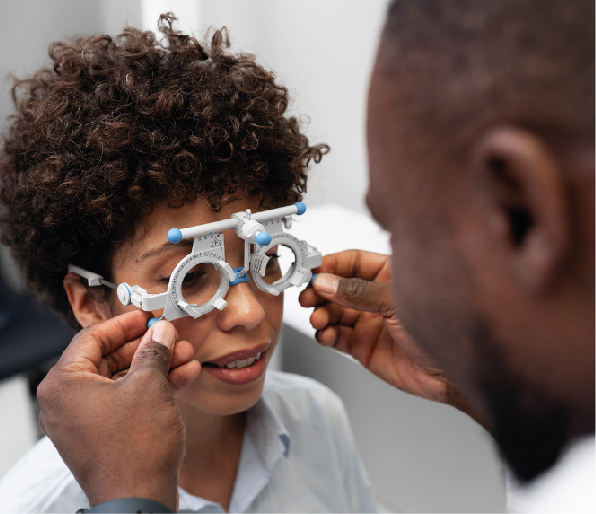What is Glaucoma?
Glaucoma is a group of eye diseases that can damage the optic nerve and lead to vision loss and blindness. While not the leading cause [source needed], it is a significant contributor to preventable blindness around the world. Early detection and treatment are crucial to prevent vision loss, making regular eye and optic nerve checks essential.
World Glaucoma is commemorated during the month of March, serves as a reminder to raise awareness of this silent threat to vision.
The Dangers of Untreated Glaucoma
If left untreated, most types of glaucoma progress gradually without presenting any warning signs or obvious symptoms. This leads to progressive visual damage that can ultimately result in blindness. Once visual damage occurs, it is mostly irreversible, earning glaucoma the titles of “silent blinding disease” and “sneak thief of sight.”
Types of Glaucoma
The most common types of glaucoma affecting adults are:
- Primary Open-Angle Glaucoma (POAG): This form is most frequent in individuals of Caucasian and African ancestry.
- Angle-Closure Glaucoma (ACG): This form is more common in individuals of Asian ancestry. While ACG is often chronic like POAG, it can sometimes present acutely, causing severe pain, rapid vision loss, and requiring immediate treatment.
Treatment Options and Early Detection
While there is no cure for glaucoma, and vision loss is irreversible, medication, traditional surgery, or laser procedures can halt or slow down further damage. Early detection is paramount to minimise visual impairment and prevent progression to severe vision loss or blindness. Early diagnosis through regular eye exams allows your eye care professional to advise you on the best course of treatment.
Eye Care Tips for Maintaining Healthy Vision
Here are some steps you can take to maintain healthy eyes and optimal vision:
- Eat a well-balanced diet: Include plenty of fruits and vegetables, especially deep yellow and green leafy varieties. Fish rich in omega-3 fatty acids, like salmon, tuna, and halibut, can also benefit your eyes.
- Maintain a healthy weight: Being overweight or obese increases your risk of developing diabetes, which can lead to diabetic retinopathy and glaucoma.
- Protect your eyes with sunglasses: Choose sunglasses that block 99% to 100% of both UV-A and UV-B radiation to shield your eyes from sun damage, which can increase the risk of cataracts and age-related macular degeneration.
- Quit smoking: Smoking significantly increases your risk of developing age-related eye diseases like macular degeneration and cataracts and can damage the optic nerve.
- Be aware of your family’s medical history: Some eye diseases are hereditary, so knowing if any family members have experienced eye problems can help you assess your own risk.
- Reduce eyestrain: If you spend considerable time using computers, practice the 20-20-20 rule: Every 20 minutes, look away for 20 seconds at something 20 feet in front of you.
Importance of Regular Eye Exams
Regular eye exams are crucial for everyone, not just those with a family history or experiencing vision problems. While children often receive vision screenings in school or doctor’s appointments, adults need more comprehensive examinations that go beyond just vision tests.
Please consult your Optometrist for further information and guidance. Click here for SAMWUMED Optometry Benefit.
Sources: https://www.worldglaucomaweek.org/ https://medlineplus.gov/eyecare.html#:~:text=Your%20eyes%20are%20an%20important,diseases%20as%20early%20as%20possible.


